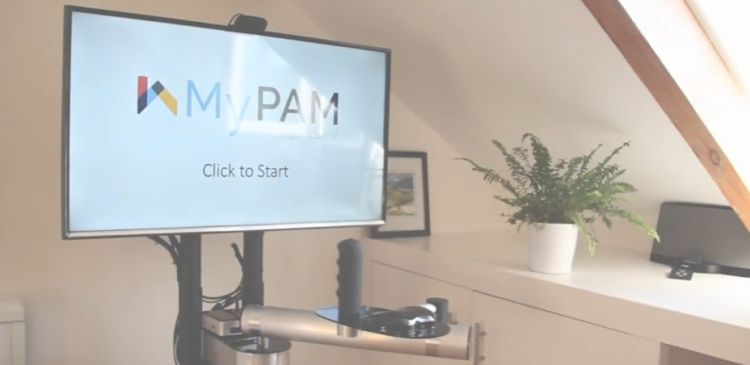Robotics
Rehabilitation technologies and prosthetics

At the Institute of Design, Robotics and Manufacturing, our rehabilitation robotics and intelligent prosthetics research is transforming lives through cutting-edge innovation and real-world impact.
Assistive and rehabilitation robotics
We co-design robotic solutions alongside clinicians, therapists, patients, and caregivers, tackling global challenges like stroke recovery, cerebral palsy, and age-related decline. These robots extend therapy into hospitals, communities, and homes, delivering effective, repetitive exercises while generating quantitative data to shape tailored treatments.
Case Study: iPAM – Intelligent Pneumatic Arm Movement
A dual-arm pneumatic system recreates therapist-guided movement across the shoulder and elbow joints.
- Features six degrees of freedom and virtual target workspaces.
- Deployed in NHS acute-stroke units under physiotherapist supervision.
- Achieved safe, extended therapy sessions without adverse events, marking its first clinical use in the UK.
Case study: MyPAM home robot
A compact planar device for home-based stroke rehabilitation, using interactive games to encourage arm movement. A pilot study with 20 participants showed improvements in both clinical scales (e.g., Fugl-Meyer, ARAT) and kinematic metrics over just four weeks. This was the first rehabilitation robot to be deployed in patients’ homes.
Intelligent prosthetics
We develop next-generation prosthetics with embedded sensing and adaptive control:
- Soft exoskeletons and modular exosuits support independence and mobility.
- Smart prosthetic limbs dynamically adjust stiffness and power to mimic natural movement while conserving energy.
- Advanced prosthetic-knee research.
Biomechanical, musculoskeletal, and neurological technologies
Our multidisciplinary teams, including engineers, clinicians, biomechanists, and neuroscientists, are pioneering transformative technologies at the interface of mechanics, biology, and medicine. The Bio‑Mechatronics and Rehabilitation Lab merges intelligent sensors, actuation systems, and adaptive control to mimic and augment the human musculoskeletal system. By drawing inspiration from natural motion, the team has developed wearable exoskeletons, soft robotics, and sensorised devices tuned for personalised rehabilitation and mobility support.
Our neurologically focused research combines neurorehabilitation, physiological signal processing, and musculoskeletal modelling. Projects range from brain-machine interface prototypes and gait‑analysis simulation to intelligent, closed‑loop robotic systems that adapt therapy to the patient’s neurological state.
What drives our impact?
- User-centred design: We involve end-users in every development phase, from workshops to trials.
- Clinical collaboration: Partnering with NHS units and therapists ensures tools meet real healthcare needs.
- Quantitative outcomes: Our devices capture detailed performance metrics, enabling tailored therapy and clear proof of benefit.
- Scalable reach: From hospitals to homes, our solutions enhance access to therapy and independence.
Research team
If you are interested in collaborating with us or joining our research team, please get in touch with our team members:

